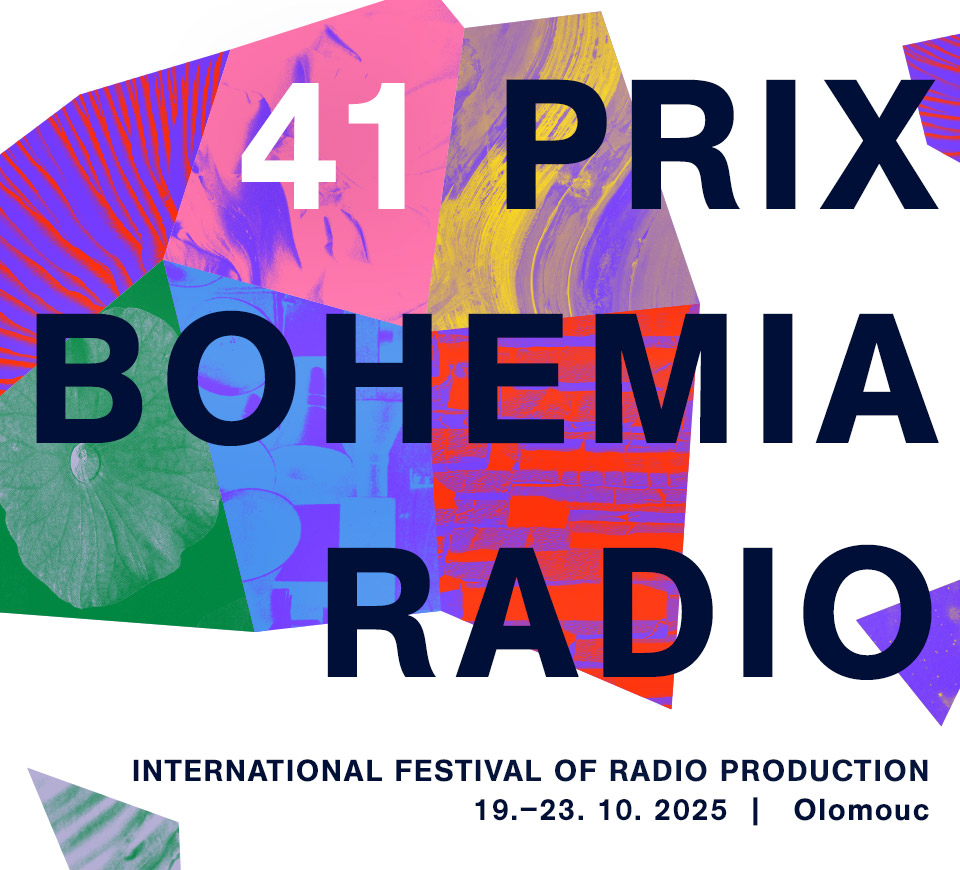The Best Dramas Were Dominated by the Theme of the Border Between Life and Death
The third day of the festival had an almost spiritual feel to it. The authors of the dramas focused on themes of life and death, or at least touched on them metaphorically. The exception was perhaps just one play - Thirteen (Třináct) - which focused on elementary school students. The center at which the pieces were publicly presented at times erupted in laughter, but also fell into thoughtful silence.
The listening began with an adaptation of the novella by Ladislav Fuks, The Cremator (Spalovač mrtvol) adapted by Lenka Veverková and directed by Aleše Vrzák. It is an artificial, bourgeois gem, the music of which evokes damnation. This realistic play prepared a tangible experience for the listeners, in which the protagonist seems to speak to the people in the hall. The audience, however, constantly compared the interpretation of the radio actor David Novotný with that of the film actor Rudolf Hrušínský.
Reto Ott, who never saw the film or even heard of the original novella, said he was deeply touched by the radio version: “I was inside the story and felt connected to the actors every step of the way. I went to hell with them.” Ondřej Urban, for example, appreciated the ambient sound recording within the play, like the sound of a pressure cooker or the reverberation of a cast-iron tub.
Though it might seem that the next play, a fairytale for children of around 10 years old, might avoid the theme of death, the opposite is the case. Valentine´s First Day on Earth (Valentýnův první den na Zemi) by author Klára Vlasáková is a play which deals with the difficult theme of death in such a way as to make it acceptable for young listeners. The jury was most taken with the purpose-driven and sensitive music and also appreciated the acting of the children. Some of the jurors even found it hard to believe this was a piece made for Radio Junior. The director of the piece, Petr Mančal, tried, in collaboration with the author, to treat this sensitive theme in such a way as to make it as un-essayistic and uncontroversial as possible: “The sound-aspect of the play is meant to be a meditation about death,” he said.
Actors Helena Dvořáková and Honza Hájek created a sensitive interplay in the drama Hilda (Hilda.) This play by French writer Marie N´Diaye had various effects on the audience, from a friendly one all the way to that of discomfort. According to the jury, the listeners will either refuse the play or will be deeply touched by its tragic story. The character Hilda, directed by Vít Vencl, is, according to Štěpán Pácl, terrible at the beginning and, as it progresses, becomes worse and worse. This is seconded by the moderator, Aleš Vrzák: “From the cremator and death guides, we arrive in hell itself.”
Thirteen (Třináct) is in the style of a Czech romantic comedy and deals with the problems of teenage boys, especially their first visit to a school discotheque. The author, Jaroslav Hejnic, is a teacher by profession and did an excellent job depicting the atmosphere of a space he is very familiar with. This family play directed by Martina Schlengelová was praised by the jury for its sound and its treatment of children’s voices. On the other hand, the jurors said that if they were thirteen, they would not want to listen to such a play with their parents.
Darkness Therapy (Terapie tmou), written and directed by Andrea Jarošová and Kristina Májová, was characterized by the jury as a comedy with both a broad reach and a lightness of storytelling. This play which doesn´t brag and which fights against cynicism and nihilism, grabbed the attention of Marina Feltlová because of its flexible scene transformations through background sound.
The only piece presented on Wednesday which did not have a story was Peter Handke´s Why the Kitchen? (Proč kuchyň?) directed by Aleš Vrzák. The drama was playful, funny, poetic and the jury liked its play with words and sound. The dialogs throughout the play, between a man and a woman - jin and jang, connects everyday life, history, geography, one could say the universe itself. It´s part art, part catalogue of sounds but for some listeners, the piece was a bit difficult to understand. A discussion erupted concerning the order of the pieces in terms of playing time. The Romanian director Ilinca Stihli made the following statement about the play: “This is something you either love or hate. I love it.”
Out of the six nominated plays, the audience award went to the play Thirteen (Třináct) and the student jury awarded its prize to Valentine´s First Day on Earth (Valentýnův první den na Zemi). The drama section was judged by Ondřej Urban, professor at the sound department at HAMU, theater director Štěpán Pácl and Slovak dramaturg of the Czech Radio Marina Feltlová. The pieces were also commented on by foreign guests, namely Ilinca Stihi from Romania and Swiss editor and creator of radio plays, Reto Ott.
We have to wait, however, to see which pieces the jury chose as the winners. The results will be announced at the closing ceremony of the festival this evening.









